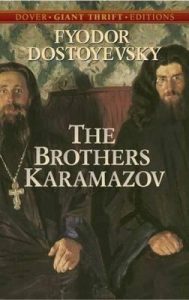 Title: One Day in the Life of Ivan Denisovich (Goodreads)
Title: One Day in the Life of Ivan Denisovich (Goodreads)
Author: Aleksandr Solzhenitsyn
Translator: Ralph Parker
Published: Penguin, 1962
Pages: 142
Genres: Classic
My Copy: Paperback
Buy: Amazon, Book Depository, Kindle (or visit your local Indie bookstore)
One of the most important works of fiction to come from the Soviet Union was Aleksandr Solzhenitsyn’s One Day in the Life of Ivan Denisovich. It was this novella that informed the world of the harsh realities of the gulag under Stalin’s reign. The reaction from the world even lead to Solzhenitsyn’s most important piece, The Gulag Archipelago, a seven volume exposition into the gulag; it was part oral history, part personal account and a political statement. The Gulag Archipelago has become an important piece of literature, and it is taught in Russian high schools, while One Day in the Life of Ivan Denisovich is sometimes assigned reading in classrooms around the rest of the world.
The novella follows Ivan Denisovich Shukhov for one day in 1951, exploring life as a prisoner in a Stalinist labour camp (known as the gulag). Aleksandr Solzhenitsyn was sent to the gulag in 1945 for criticising Joseph Stalin in a private letter. He would have been left there to die but when Nikita Khrushchev became the first secretary of the Communist party after Stalin’s death in 1953, Solzhenitsyn was released in 1956 due to his poor health. Most of his writing is autobiographical in nature, in particular One Day in the Life of Ivan Denisovich (about life in the labour camps) and Cancer Ward (which is about his battle with cancer that lead to his release from the gulag).
The significance of this novel is far reaching, not just on giving the reader an understanding on life in the labour camps but also as a political statement on Stalin. The book looks at the struggle to keep human dignity in such harsh treatment. From constantly being treated inhumanely to the removal of their identity by referring to everyone by a serial number (Shukhov being SHCHA-854). While the guards are constantly trying to discourage camaraderie, we still get a glimpse into the interactions between the prisoners. It is here that we get an idea on just how temperamental Stalin could be. Although getting into the tyrannical reign of Stalin requires more research, you get an idea of unjust punishment while reading One Day in the Life of Ivan Denisovich.
There is a lot to explore in One Day in the Life of Ivan Denisovich ranging from the constant struggle with privacy to the vivid descriptions of the cold weather. However, the one thing that stood out for me is the parcels that Tsezar was selling. Not just tobacco but a range of desirable items. For me he became a symbol of worldly pleasures in a place where everyone had nothing. This turns the novella into something so much deeper. You might notice that the name Tsezar is similar word to Tsar, in fact both are Russian words for Caesar. Keeping this in mind we now have a motif for the events that lead to the Russian revolution and it begins to explore the corruption of power under Stalin. Rather than working towards the socialist utopia that the Bolsheviks dreamt of, Stalin rewarded the people that had his favour while punishing everyone else. This idea stuck with me and I think it transformed Aleksandr Solzhenitsyn’s work into something far greater. Although this is what I have come to expect from this author.
This is only my second Solzhenitsyn book (the other being In the First Circle) but I am constantly surprised with the depth he goes to in order to explore his ideas. His books were often published as samizdat (Russian for self-published but referring to the illegally published and distributed literature of the Soviet era) but he still has a unique ability to hide a deeper idea in his novels to avoid serious repercussions from the government. One of my favourite parts of Soviet literature is the way the authors often use satire, motifs and symbolism to explore their true message. I always get a thrill from these books, as if I am understanding some hidden secret. I do think One Day in the Life of Ivan Denisovich is an essential read for anyone interested in Russian literature and I am a little ashamed I put if off for so long.

 Title: Voroshilovgrad (
Title: Voroshilovgrad ( Title: The Meursault Investigation (
Title: The Meursault Investigation ( Title: The Dead Lake (
Title: The Dead Lake ( Title: Treading Air (
Title: Treading Air ( Title: Don Quixote (
Title: Don Quixote ( Title: The Tsar of Love and Techno (
Title: The Tsar of Love and Techno ( Title: The Brothers Karamazov (
Title: The Brothers Karamazov ( Title: Submission (
Title: Submission ( Title: The Librarian (
Title: The Librarian (